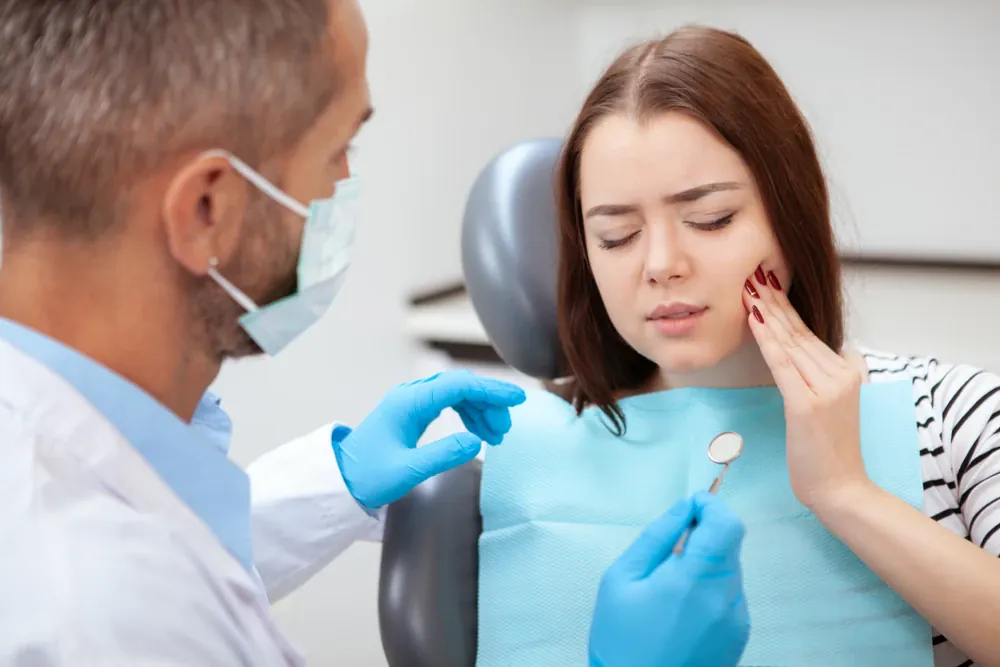Taking care of oral and dental health is crucial to maintaining general health and personal comfort, as teeth are one of the most important organs in the body. They play a vital role in chewing food and speaking. Strong, healthy teeth also reflect a healthy lifestyle and contribute to a feeling of confidence and comfort during social communication. But what if it becomes a source of pain and inconvenience? Tooth decay is one of the most common health problems, affecting millions of people worldwide and leaving behind negative effects on our health and well-being. This can be avoided by following several simple preventive measures.
What is tooth decay?
Tooth decay is known as a destructive process that affects the hard tooth tissue (enamel) as a result of the accumulation of acids secreted by bacteria in the mouth. These acids cause holes in the enamel and, over time, lead to their erosion of the dentine of the tooth, causing severe pain and severe sensitivity to tooth decay. Cold or hot foods and drinks
What are the causes of tooth decay?
There are many causes of tooth decay, including:
- Bacteria: Bacteria found in the layer of plaque accumulated on the teeth are the main cause of tooth decay. These bacteria feed on food scraps and sugars, secreting acids that attack the enamel and lead to its erosion.
- Diet: Excessive intake of sugars and starches is one of the most important factors that contribute to tooth decay, as these foodstuffs form a suitable and stimulating environment for the growth and reproduction of bacteria, which leads to increased secretion of acids that cause tooth decay.
- Oral hygiene: Neglecting to brush your teeth with toothpaste and brushing at least twice a day is one of the most important factors that contribute to the accumulation of tartar and tooth decay.
- Dry mouth: Dry mouth is also one of the factors that leads to a lack of saliva, which affects the mouth’s ability to clean itself naturally, and this ultimately leads to the accumulation of bacteria and tooth decay.
- Some medications: The effect of some medications, such as antihistamines and diuretics, can lead to dry mouth, which contributes to tooth decay.
- Genetic factors: Genetic factors can also play an influential role in tooth decay, as some people are naturally more susceptible to tooth decay than others.
What are the symptoms of tooth decay?
Symptoms of tooth decay vary depending on the severity of the condition and include:
- Severe and annoying pain: Pain is one of the most common symptoms of tooth decay, especially when consuming hot, cold, or sweet foods and drinks.
- Tooth sensitivity: Some people may feel sensitive when consuming hot or cold foods and drinks, as well as sweet ones.
- Teeth discoloration: Teeth affected by decay may become white, yellow, or brown.
- Holes in the teeth: Holes usually appear in the teeth as the caries progresses.
- Bad breath: The accumulation of bacteria in the mouth leads to bad breath.
What are the ways to prevent tooth decay?
Tooth decay can be prevented by following the following steps:
- Healthy nutrition: By following a healthy diet, avoiding foods and drinks rich in sugars, and focusing on eating foods rich in calcium and phosphorus, such as milk, cheese, and fresh fruits and vegetables.
- Daily dental care and maintaining their cleanliness: Teeth should be cleaned regularly with the appropriate brush and paste after each meal or at least twice a day, and also use medical floss once a day to remove food waste and tartar from between the teeth. The intake of sweets, soft drinks, and pastries that contain large quantities should also be reduced. Of sugars to reduce the risk of tooth decay.
- Visiting the dentist regularly: It is necessary to visit the dentist regularly at least every 6 months to perform a dental examination and perform preventive treatments such as cleaning. Visiting the dentist regularly helps detect any problems early and take appropriate preventive measures.
After knowing the causes of tooth decay and relying on the preventive measures necessary to avoid it, the importance of taking care of oral and dental health appears. Proper nutrition and good oral hygiene in addition to regular visits to the dentist are the keys to maintaining strong and healthy teeth. By taking care of our teeth regularly, we can protect ourselves and our teeth from problems such as the annoying pain of tooth decay, and thus, enjoy a healthy and attractive smile that reflects our natural beauty and inner happiness.
 English
English
 العربية
العربية


Add New Comment